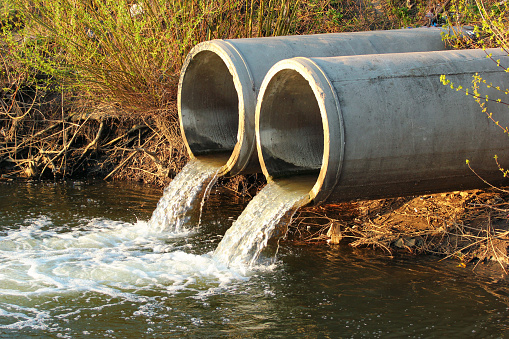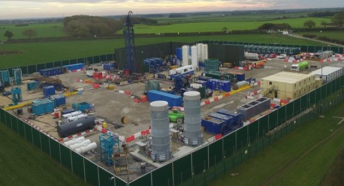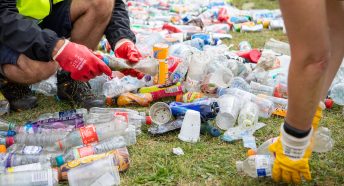Sewage Pollution in North Yorkshire – what’s really going on and what can we do?
You may have noticed a big outcry in recent days about water companies dumping raw sewage in our rivers and seas – 400,000 times across England in 2020.
The figures for North Yorkshire are equally shocking. In 2020 water companies dumped raw sewage 23,367 times into the rivers and sea of North Yorkshire, for 195,084 hours. The House of Lords have proposed legal text that will deal with this problem, the Government are trying to replace this with text that appears good but in reality will let water companies off the hook. Your MP will be voting on this on Monday 8 November! Ask them to do the right thing.
What’s the problem with sewage?
This extent of sewage pollution is a huge concern for nature, people and the local economy. Raw sewage carries nutrients and chemicals that kill wildlife and destroy river ecosystems, bacteria that make river users ill and large quantities of plastic pollution. And in an area like North Yorkshire, where much of our tourism is connected with enjoying our beautiful countryside and waterbodies, sewage pollution can damage local businesses and the economy.
Sadly, pollution of rivers and seas from sewage pollution is not a new thing, but it is getting worse due to climate change and increasing population and development. The data has been public for a while, shared since spring 2020 by the Rivers Trust through their brilliant “Is My River Fit to Swim In” map, and we shared figures for North Yorkshire in summer 2021.
Why are people talking about it now?
The topic has grabbed everyone’s attention now because of the huge public outcry in October when MPs voted, in line with the Government whip and the Minister’s recommendation, to reject a legal requirement in the Environment Bill for water companies to reduce sewage overflows. They are due to vote again on the matter on Monday 8 November.
When MPs and the Government came under fire for appearing to let water companies off the hook, they quickly sought to justify their actions. MPs sent letters to constituents and Government gave statements, saying that the legal requirement to reduce storm overflows would be too costly: they claimed it would require complete replacement of existing sewer network and cited figures of between £150 and £660 billion.
Both the assumption and the figures have been widely challenged and, it seems, were vastly exaggerated. To start with, it was disingenuous to claim the entire system would need to be dug up and replaced. In North Yorkshire alone 14% of treatment works/storm overflows had 0 spills in 2020, 42% had 10 or fewer and 28% of them spilled for less than 10 hours, in the whole year. This does not mean there’s not a problem, for example 9% of sites had spills lasting for over 1000 hours. But it means the costs and upheaval would be far less than claimed.
The costs came from the Government’s Storm Overflows Taskforce, but of course the highest figures for the most daunting (and unnecessary) work were picked out. Perhaps most worryingly for MPs, the report included estimates for how much different options would add to water bills. But, when water companies have paid out £57 billion in dividends over the past 30 years and paid their CEOs £65 million in the past 5 years, is it really fair for Government to imply and plan to allow water companies to charge bill payers for essential upgrades to the system? A lot of the work could have been paid for by water companies already if they hadn’t chosen instead to extract that money for the benefit of staff and shareholders.
Isn’t it all sorted with the Government “U-turn”?
In response to the outcry Government announced that they’d had a change of heart and would draft their own text for a legal requirement to reduce “the impact” of storm overflows. Problem solved? Sadly not.
Finally, on Friday 5 November, they shared their proposal (leaving only the weekend for public scrutiny, when the staff of environmental campaigning organisations would not be working). The Government text asks for the following:
“A sewerage undertaker whose area is wholly or mainly in England must secure a progressive reduction in the adverse impact of discharges from the undertaker’s storm overflows.
…reducing adverse impacts on the environment, and reducing adverse impacts on public health.”
What will the MPs vote on 8 November be about?
MPs will be asked to choose between the Governments new text above and the Duke of Wellington’s amendment from the House of Lords, which asks for:
Let’s be clear – the Government text will not save our rivers. Its wording is very (deliberately?) open to misinterpretation and abuse. For example – will water companies chose to “reduce impact” by simply piping sewage further out to sea or downstream of sensitive stretches of river? Will they seek to “reduce impacts on human health” just by sharing data or telling people not to use a section of river because it’s full of sewage? Also “progressive reduction” is problematic. 1 gallon per year is a reduction, but it would make a fat lot of difference to an area receiving 1000s of gallons a year. In short, it commits water companies to very little and leaves our rivers and sea without protection. If this is enshrined in law it would take many years and a herculean effort to do anything about it.
Some MPs have claimed that the Environment Bill already went far enough, with requirements for increased monitoring and plans to deal with storm overflows. But we know the scale and seriousness of the problem, and while more monitoring is all well and good, our rivers and seas need action. Now. They do not need another year of planning and monitoring followed by decades of creative excuses from water companies.
So what can we do?
- Keep up the pressure!
Urgent Action:
- Email your MP by Monday 8 November asking them to support the Duke of Wellington’s amendment and stressing that the Governments proposed text is not fit for purpose. Contact them (politely!) on social media.
Ongoing:
- Follow and support national and local campaigns – e.g. Surfers Against Sewage, Rivers Trust, Ilkley Clean River Campaign.
- Keep talking to your MP about this issue, until all our rivers and coast are free from sewage!
- If you see a water pollution incident – report it to the Environment Agency on 0800 80 70 60.
- Check how bad sewage pollution is in your local area or favourite spots on the Rivers Trust’s “Is My River Fit to Swim In” map
- Do your bit!
- Think carefully what you put down your drains, choose eco-friendly cleaning products and only put poo, pee and paper down the loo (wet wipes and other rubbish down the loo clog up the sewerage system and make sewage spills more likely!).
- Read our tips for other things to do – Caring for the amazing rivers of North Yorkshire!! – North Yorkshire (cprenorthyorkshire.co.uk)
Thank you.
If you want to know more about how sewage pollution is affecting North Yorkshire, read on.
The picture in North Yorkshire
Raw Sewage Spills in North Yorkshire in 2020 by Constituency (analysed by CPRE North Yorkshire)
| Constituency | Number of raw sewage spills in 2020 | Total duration of raw sewage spills (hours) in 2020 | Number of sites (sewage treatment works or Combined Sewer Overflows) | Average number of spills per site in 2020 | Average duration of spills (hours) per site in 2020 |
| Thirsk and Malton | 3640 | 22129 | 133 | 27 | 166 |
| Middlesbrough | 192 | 477 | 13 | 15 | 37 |
| Middlesbrough S and E Cleveland | 582 | 3810 | 36 | 16 | 106 |
| Richmond | 4812 | 49124 | 113 | 43 | 435 |
| Redcar | 304 | 775 | 25 | 12 | 31 |
| Scarborough and Whitby | 1427 | 8585 | 67 | 21 | 128 |
| York Outer | 566 | 5124 | 25 | 23 | 205 |
| Selby and Ainsty | 2385 | 18847 | 63 | 38 | 299 |
| Skipton and Ripon | 6325 | 63889 | 123 | 51 | 519 |
| York Central | 1836 | 14838 | 57 | 32 | 260 |
| Harrogate and Knaresborough | 1298 | 7486 | 60 | 22 | 125 |
| Totals (North Yorkshire) | 23367 | 195084 | 715 | (Ave 32.6) | (Ave 248.9) |
Figures taken from Water Company data, published by Environment Agency, mapped by The Rivers Trust.
Raw Sewage Spills in North Yorkshire in 2020 by Water Company (analysed by CPRE North Yorkshire)
| Water Company | Number of raw sewage spills in 2020 | Total duration of raw sewage spills (hours) in 2020 | Number of sites (sewage treatment works or Combined Sewer Overflows) | Average number of spills per site in 2020 | Average duration of per site in 2020 |
| Northumbrian | 2247 | 17642 | 107 | 21 | 165 |
| United Utilities | 1759 | 20478 | 15 | 117 | 1365 |
| Yorkshire Water | 19361 | 156963 | 595 | 33 | 264 |
Figures taken from Water Company data, published by Environment Agency, mapped by The Rivers Trust.
More about the situation in North Yorkshire
Some examples and stories from our area:
- The worst affected constituencies are Richmond (total 4812 spills, 49124 hours, average per site of 43 spills for 435 hours) and Skipton and Ripon (total 6325 spills for 63889 hours, average per site of 51 spills for 519 hours). Redcar and Middlesbrough are the best with an average of 12 and 15 spills per site lasting 31 and 37 hours.
- Monitoring equipment at some sites wasn’t working for some of 2020, leading to under-reporting. For example, at Helmsley sewage treatment works, the equipment was only operational for 4% of 2020 (~15 days), and yet in that time it recorded 50 spills lasting for 150 hours. Just how bad is the true figure?!
- Staithes was de-designated as a bathing water in 2015, after failing water quality tests for years. It was claimed that Yorkshire Water had addressed issues with sewage and that the pollution was from farmland run-off. Yet in 2020 the sewer storm overflow in Staithes harbour spilled for 1022 hours. Perhaps that might have had something to do with it?!
- In September 2021 Yorkshire Water were fined £150,000 for allowing sewage to pollute Potteric Carr Nature Reserve and Site of Special Scientific Interest in 2017. The spill was a single incident caused by a faulty valve and Yorkshire Water have since upgraded their equipment.
- Swimmers and locals have raised concerns about the health impacts of sewage pollution in the River Nidd at Knaresborough, with stories about children becoming ill after swimming. Local media reported Yorkshire Water data which showed that sewage spilled into the Nidd 1152 times, for 16,713 hours in 2020.
How North Yorkshire MPs voted on sewage
MPs who voted against a legal requirement in the Environment Bill for water companies to reduce overflows:
- Nigel Adams (Selby and Ainsty)
- Kevin Hollinrake (Thirsk and Malton)
- Andrew Jones (Harrogate and Knaresborough)
- Julian Sturdy (York Outer)
- Jacob Young (Redcar)
- Robert Goodwill (Scarborough and Whitby)
- Julian Smith (Skipton and Ripon)
Those who voted for a legal requirement:
- Rachael Maskell (York Central)
- Andy McDonald (Middlesbrough)
Those who didn’t vote:
- Simon Clarke (Middlesbrough South and East Cleveland)
- Rishi Sunak (Richmond)









